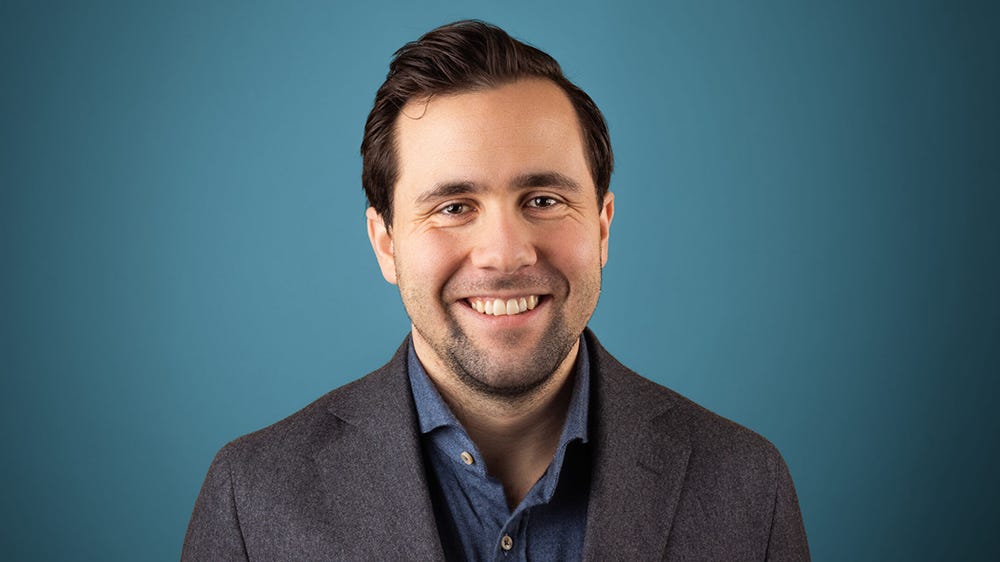Development Sweden #39. Benjamin Dousa new minister for ODA
A newsletter on Swedish development cooperation and policy
Sweden's new minister for foreign trade and development cooperation is Benjamin Dousa. This issue will tell you more about him.
Sweden’s aid budget will be reduced to €53 billion for 2026. The government also proposes that the same amount will apply for the first year of the next parliamentary term, even though it is far from certain that the coalition will remain in power. The government has also presented its budget for 2025 with few surprises for the development sector.
Finally, the latest on the never-ending story about Stockholm International Water Institute (SIWI): What will happen now?
If you would like to read the full newsletter, you are welcome to upgrade to a paid subscription. Thank you for joining Development Sweden and supporting our work so that we can continue to deliver insight into Swedish development cooperation and policy.
David Isaksson
Editor-in-Chief, Global Bar Magazine
Monika Gutestam Hustus
Editor, Development Sweden
What do you think we should write more about? Please give us feedback and suggestions.
Write to:
david@globalreporting.net
mgutestam@aol.com
For subscription-related issues, contact:
lisa@globalreporting.net
Our headlines
Benjamin Dousa new Minister for Development Cooperation
Sweden’s ODA is to be cut to 53 billion in 2026
Budget 2025: few surprises for ODA
SIWI's new management puts the lid on
Benjamin Dousa new Minister for Development Cooperation
Benjamin Dousa has been appointed as the new Minister for Development Cooperation and Foreign Trade. At the same time, the current Minister for Development Cooperation is ‘moved’ to the role of Minister for Migration. Maria Malmer Stengard will be the new Minister for Foreign Affairs.
Benjamin Dousa, 31, is one of the younger additions to the government. Although he grew up in Husby, one of Stockholm's suburbs, he was educated in one of the city centre schools from third grade. His previous political career included the role of President of youth wing (MUF) of the conservative party between 2016 and 2020 before he completely stepped off the party's political path.
During his active years in politics, he made a name for himself by speaking out independently on the party whip and not shying away from criticising his party. The fact that a youth organisation differs from its parent party is nothing new. Already in 2018, under Benjamin Dousa's leadership, the party voted in favour of zero subsidies for culture and abolishing public service.
His decision to quit politics in 2020 was surprising, as he was seen as a future leader of the Moderates. Speaking about his departure, he told Aftonbladet that he had no plans to return to politics.
Since then, Dousa has been CEO of the centre-right think tank Timbro before becoming CEO of the organisation Företagarna.
The choice is surprising in many ways. From the sidelines, Dousa has been one of the Kristersson government's most prominent critics. After the 2023 budget, he accused the concervative led government of pursuing “social democratic policies”.
During the past four years and his break from party politics, Benjamin Dousa has written nearly thirty editorials for the conservative newspaper Svenska Dagbladet. He has used Botswana as an example of how ‘the market economy is the best way yet for humanity to create prosperity’.
‘Every day I will protect taxpayers’ money,’ says Benjamin Dousa at the government's press conference in connection with the opening of parliament.
With that, he announced that he intends to continue and build on the work underway with the government's reorganisation of aid policy and increase transparency to ensure that the money goes to what the government intended.
Benjamin Dousa, who has a bachelor's degree from the Stockholm School of Economics, will also take over Johan Forssell's ‘portfolio’ for foreign trade issues. The Prime Minister, Ulf Kristersson, emphasises Benajmin Dousa's experience in the business world and focuses on integrating the entire ‘portfolio’ for his new role.
‘We will carefully evaluate every krona spent on Swedish aid. That they are used for the right cause and in the best way,’ said Prime Minister Ulf Kristersson at the government press conference in connection with the opening of Parliament.
The new foreign minister, Maria Malmer Stenergard, 43, was the favourite of several newspapers and people within the party. She has been Minister for Migration for the past two years. During her time in office, the government focused on increasing return migration and tightening migration policy. Under her leadership, there have been changes to the Citizenship Act. The new provisions will mean, among other things, that a person who is reasonably suspected or convicted of a certain type of offence will not be able to obtain Swedish citizenship by notification. The changes will apply from 1 October 2024.
According to earlier information, Dag Hartelius will be the new Cabinet Secretary at the Ministry for Foreign Affairs. He joined the Ministry in 1985 and has been ambassador in Tallinn and Warsaw. He has also been Sweden's Ambassador to the EU at the Permanent Representation in Brussels. Between 2013 and 2019, he was the Director-General of the Swedish Defence Radio Establishment (FRA). Diana Janse will remain state secretairy for Development Cooperation under the new minister.
Other changes include the appointment of Jessica Rosencrantz, 36, a member of the Moderate Party, as the new EU minister after Jessika Roswall, who will become the Swedish EU commissioner.
In addition, Johan Pehrson and Mats Persson, both Liberals, will swap ministerial posts. Johan Pehrson will be the Minister for Education, while Mats Persson will be the Minister for Labour and Integration.



